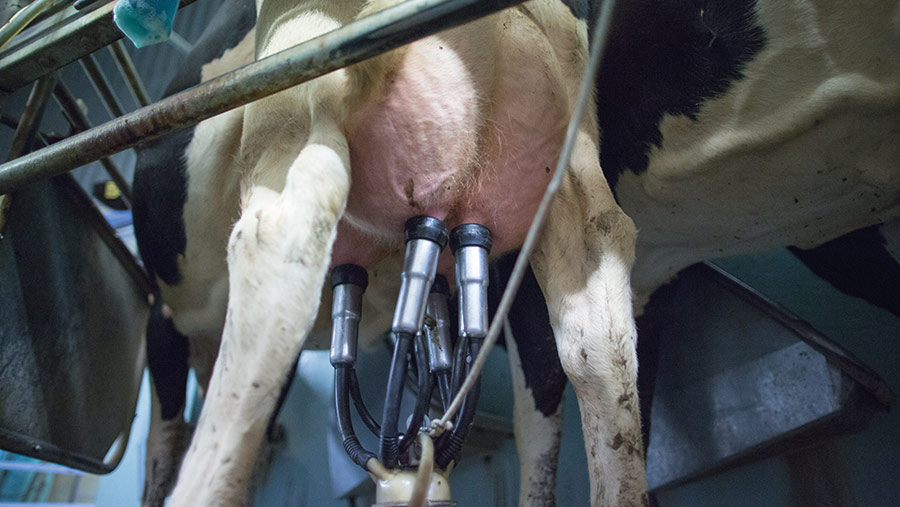Food security top of the agenda at Dairy Tech
 © Tim Scrivener
© Tim Scrivener Food security, trade and sustainability were the key topics at the introduction to the Dairy Tech event today (Thursday 7 April).
The keynote session on challenges and opportunities for British dairy looked at how markets were coping in the current climate, alongside the political and market outlook.
See also: Advisers set 50p/litre as new milk price target
Food security has been brought to the forefront as a result of conflict in Ukraine, and market uncertainty is expected to remain for several years in response to this.
John Allen, managing partner at Kite Consulting, said the new world now is about food security and sustainability. As an industry we can help consumers know what the value of food security is going be, he suggested.
Retailers took in some of the inflation last year but they are not taking in the most recent spike in inflation as they do not want to increase prices, said Mr Allen.
Lyndon Edwards, AHDB board member and sector chairman, believes the dairy sector is in a perfect position to capitalise on the current market.
“There is a lack of supply of milk for the next 12 months, and there is less available for export at the moment. The ability to export, though, is an important part of the portfolio, and when we do have 1% too much milk, that export market could be a very valuable 1%,” said Mr Edwards.
Trade
UK farmgate milk prices are reportedly behind global commodity markets and there is scope to expand our export volumes.
Mr Allen said European milk supply is expected to decline by between 10% and 20% in the coming years. New Zealand is a key exporter of dairy products, however its production is not expected to grow further as it is operating close to maximum production.
The US in particular has scope to increase its milk production and grow its exports, said Mr Allen.
Sustainability
The panel, chaired by RABDF chairman Di Wastenage, agreed that carbon measuring and a heavier focus on sustainability will become the new normal and part of regular business practice.
Tools to measure biodiversity and soil health are being developed and are expected to become commonplace, however regulation is needed to create an industry standard.
Market volatility is here to stay, according to Barclays national agricultural strategy director Oliver McEntyre, who said that when markets are more volatile it is key to have a plan in place and be able to make changes.
Mr McEntyre said we are probably only about five years off from when a farm business looking for investment will need to have a carbon and sustainability plan as part of its business model.
Farmers’ ability to adapt is key to their survival, said Mr Edwards.
Government action
The government remains out of touch on issues relating food security and production, according to the panel, and more guidance is needed on some of the new government initiatives to allow businesses to develop.
Peter Alvis, former RABDF chairman, said: “We need the government to wake up and develop a food and farming strategy for the next 30 years.”
Mr Edwards said farmers can’t invest in schemes, such as the slurry storage scheme, until there is better guidance from government on them.
